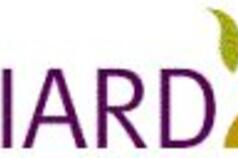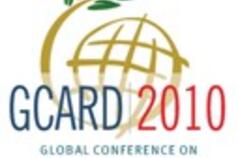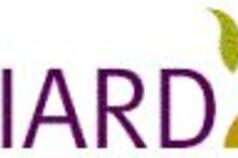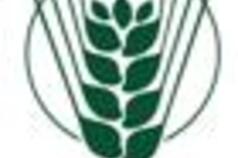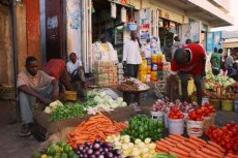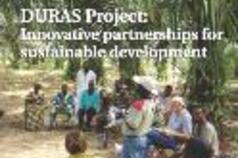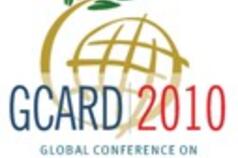The Global Forum on Agricultural Research is seeking qualified applicants for two new project positions in the GFAR Secretariat, based in Rome:
1. Senior Officer, Agricultural Innovation and Society (P5 grade)
2. Information Systems Specialist (P3 grade)
These challenging and exciting positions were created to increase the capacity of the Secretariat in these key areas, to enhance the programmes of GFAR and to support the transformation and strengthening of agricultural research for development systems around the world, as laid out in the GCARD Roadmap.
Full post descriptions and details of how to apply can be found in the attached website:
http://www.fao.org/employment/project-vacancies/en/
The deadline for applications to either position is 9 May 2011.
Building the CIARD Framework for Data and Information Sharing: e-consultation
In 2011, CIARD is addressing the topic of sharing and interoperability of data and information for agricultural research for development.
There will be an international Expert Consultation in Beijing from 20 to 23 June 2011 with the title "Building the CIARD Framework for Data and Information Sharing".
The GCARD RoadMap has been finalized. The RoadMap was created through the contributions and dynamic interaction of thousands of stakeholders from all sectors with the aim of promoting discussion, partnership and actions around key themes.
1. ICAR invites all Indian NARIs and universities to join CIARD
The Indian Council of Agricultural Research (ICAR) has formally invited all ICAR Institutes and all Universities to join the “Coherence in Information for Agricultural Research for Development” (CIARD) initiative (http://www.ciard.net) and register their services in the CIARD RING (http://ring.ciard.net).
This decision follows a specific recommendation formulated in a meeting on “Information and Communication Technology” held at ICAR in November 2010 under the Chairmanship of Dr. S. Ayyappan, Secretary of the Department of Agricultural Research and Education (DARE) and DG of ICAR. The recommendation stated that “All ICAR institutes and SAUs should be linked to CIARD”.
This is a big step forward in making the CIARD agenda officially endorsed at the national level.
2. Chinese versions of the CIARD and CIARD RING websites coming soon
The multi-stakeholder constituencies of the Global Forum on Agricultural Research (GFAR) have prioritized the issue of agro-biodiversity as one of prime global importance. The International Treaty on Plant Genetic Resources in Food and Agriculture (ITPGRFA) recognizes the importance of agricultural research and contains special provisions for the exchange of information, transfer of technology and capacity building related to plant genetic resources.
The work of GFAR and the ITPGRFA converge in the need to expand varietal conservation, exchange and use, and the fair sharing of benefits, to include a wide range of species that have huge local significance and in many cases global market potential. Both GFAR and ITPGRFA are keen to facilitate greater collaboration and synergies among the many programmes addressing these crops, a view that has been echoed through discussion with all those concerned about the future of these species.
Over recent years, regional initiatives and multi-partner international actions related to the International Year of Biodiversity have highlighted these links. There is a strong desire for collaborative action in and between regions in order to achieve development impact at scale. Examples are the biodiversity conservation and use frameworks now articulated for Africa and Asia.
The DURAS Programme has pioneered new ways of integrating innovation from science with that from communities themselves. DURAS supported the facilitation role of the Global Forum on Agricultural Research (GFAR) in promoting the opening up of public agricultural research to equitable partnership with others.
At the heart of DURAS has been its innovative competitive grants system, which followed an original selection and evaluation process that placed a premium on multi-stakeholder partnerships. The principles developed through DURAS ensured that research priorities were identified in a participatory fashion and that less vocal stakeholders, most notably civil society groups, were mobilized to participate meaningfully in agricultural research for development (AR4D) processes. Alongside research practice, the programme also promoted the wider sharing and exchange of agricultural knowledge through interactive regional agricultural information systems.
<p>The contributions and dynamic interaction of thousands of stakeholders from all sectors have created the GCARD Roadmap, providing a clear path forward for all involved. The Roadmap highlights the urgent changes required in AR4D systems globally, to address worldwide goals of reducing hunger and poverty, creating opportunity for income growth while ensuring environmental sustainability and particularly meeting the needs of resource-poor farmers and consumers.</p>
Professor Monty Jones began his career in agricultural research about 35 years ago. Professor Jones, a Sierra Leonean, has spent the past 23 years of his career in Africa working in international agricultural research for development institutions. While working at the West Africa Rice Development Association’s (WARDA) main research center in Côte d’Ivoire, Prof. Jones and his team developed the New Rice for Africa (NERICA) which gives higher yields, shorter growth cycles and more protein content than its Asian and African parents; for this Prof. Jones won the World Food Prize in 2004.
In 2002, Prof. Jones was appointed Executive Secretary for the Forum for Agricultural Research in Africa (FARA) where he coordinates advocacy for agricultural research for development in Africa as well as regional research. In March 2010, Prof. Jones was elected Chair of the Global Forum for Agricultural Research for Development (GFAR) where he continues to advocate for agricultural research and world-wide coordination of research efforts.


